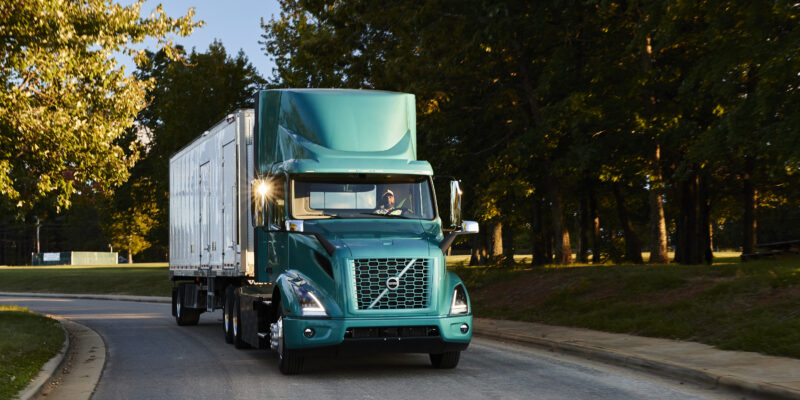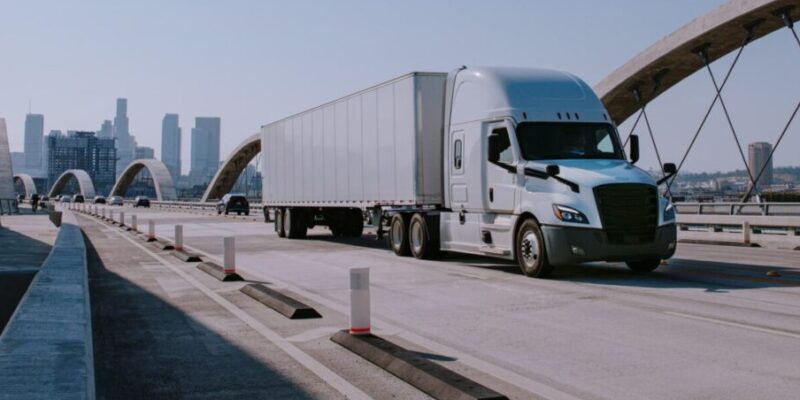Female fleet owner on getting started in trucking

Margarita Stepanova has never shied away from hard work. She emigrated from Russia to the United States when she was 21 years old, raised 2 children by herself, earned a graduate degree, and built a successful career in human resources. Getting into trucking, however, was an entirely different endeavor. “I never imagined how difficult it would be to own a business in trucking,” she says.
Before diving into the new field, Margarita took the time to research and understand the requirements for starting a trucking company. She later started her company, Kuma Group Corp, with a friend who already drove, learned the industry, forged relationships, and slowly expanded. After almost 5 years, Kuma Group Corp is going strong with several trucks, drivers, and owner-operators.
Uber Freight chatted with Margarita to find out how she tackled the challenge of building a business from the ground up and what it’s like to be a woman owner in the trucking industry.
Tell us about your journey in trucking.
I was an HR person for years, slowly moving up the ladder. I became a manager, and then a director, and I did that for 7 years. When I ended up with an old truck, I wasn’t sure what to do with it. My current business partner, who was a friend at the time, said, “Let’s give it a shot. Let’s find a driver and put it on the road. Let’s see if it works.”
I spent 6 months doing research to see just what it took to start a trucking company. I’d seen trucks on the road, but that was my only experience with them. It seemed like many people start as drivers, and then they buy a truck and expand. Even so, I told my friends and family, “If they do it, I can do it!” We didn’t have a driver at first, but my partner had a CDL, so he drove the truck first until we found someone.
Within the first year and a half, we added a second truck. The next year, we added a third. By the third year, I had good relationships with the companies giving me [loads], and I had more work than 3 trucks and 3 drivers could handle. I started getting people calling me, owner-operators asking for work and loads. When I took on my first owner-operator, I realized that was the ideal in this business instead of adding my own trucks, dealing with repairs, and looking for drivers. I still have that philosophy.
What are some of the challenges you faced while building your business?
Trucking is very high-risk in terms of accidents, breaking equipment, drivers leaving you with no income, and just the general pushback you get from banks or brokers. At every step, it was so difficult.
The banks wouldn’t give a new trucking company a credit card because we hadn’t been in business for over a year. You really need capital to go into trucking. You’re putting in your own money, and there’s really no one out there to support you. Many insurance companies also wouldn’t give us a policy, or they’d give us a quote that was unreasonable. From every side that first year, it was like going to war. You’re just fighting your way through.
Luckily I was still getting a salary from my full-time job at the beginning, so I spent that on setting up the business. Six months in, I was able to quit. The good thing is that once you get that first contract, you see the money coming in.
What is it like to be a woman in a traditionally male-dominated industry?
I had to learn to deal with guys from the time I was 2 years old. I grew up in a house with 12 brothers and my dad, who was in politics and government. I just watched them and wanted to be like them but knew that I couldn’t. In Russia, it wasn’t about finding a career for women. It was about finding a good husband.
Trucking is such a tough industry, especially for women. In the beginning, when I was trying to get work, I’d be standing next to huge guys in some warehouse. I’d start talking about why they should work with us, and they’d be like, “OK, bring in your boss.” I’d say, “Actually, I am the boss,” and every single time the response would be something like, “Get […] out of here!” They wouldn’t believe me until I proved the trucks were actually mine.
But I believe that if you put in the time, effort, and your whole heart, you can learn what you need to learn. Sometimes you learn the hard way, but you really can do anything you want to do.
Is it easier now to be a woman in trucking than when you started?
This industry is very slow-changing in terms of rules and philosophies. I only know one other woman who runs a trucking company, and we feel so close because she’s the only one I can really relate to. Guys might not take me seriously, and you have to be careful earning their respect, but I’m not outraged by it. I’m grateful that most of the time, I’m accepted.
How does Uber Freight help you do your job?
We’ve been using Uber Freight for almost a year. The moment I started, I didn’t want to stop. Uber [Freight] is so progressive in this old-school industry. I really think that the ease and the process, not having to negotiate and call 10 different brokers to secure loads, saves so much time and gives peace of mind. I use the fleet features to book loads and assign drivers, and my drivers are using the app, too.
The younger ones love it. The older ones are always like, “What if I mess things up?” But I tell them that you can’t make a mistake because it’s so easy. I really love what you all came up with, just like what Uber did with [ridesharing]. I would have said you’re crazy to try and do it with trucking, but you did it! I admire whoever came up with the idea. I’m not against progress.
What do you love about your work?
I love working with people, like the account managers, drivers, and warehouse [workers]. I think people are easier than machines or computers. I also love the flexibility of building my own future. It’s all up to me to do better.



